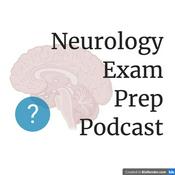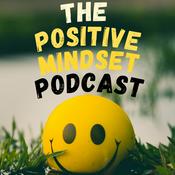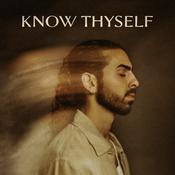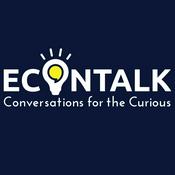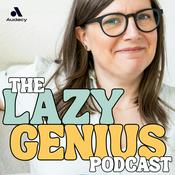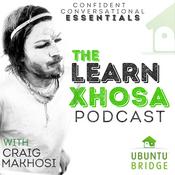36 episodes
- In this episode of Wonderfully Wired, hosts Elle and Juju sit down with ADHD expert and bestselling author Peter Shankman. Peter shares his unique perspective on the ADHD brain, comparing it to the controlled chaos of a Tokyo crosswalk. The conversation dives into the "all or nothing" nature of neurodivergence, covering Peter's "Chicken Genocide Diet" and his "Ironman" approach to managing energy. Peter also provides profound insights for parents, arguing that neurodivergent children are gifted, not broken, and stresses the importance of teaching skills alongside medical support. This episode is a masterclass in high-performance ADHD management, proving that with the right "traffic lights," a fast brain can achieve extraordinary things.
- In this episode of the Wonderfully Wired Podcast, host Eloise Leher is joined by author, speaker, and autism dad Will Acuff for a deeply reflective conversation about parenting neurodivergent children.
Will shares how his natural instinct to "fix problems" collided with the reality of parenting his son — and why shifting from fixing to knowing became transformational. Together, they explore what happens when parents take responsibility for their own responses, nervous systems, and expectations, rather than trying to change their child.
This episode will resonate with parents of autistic and neurodivergent children, educators, and professionals interested in executive functioning, emotional regulation, and hope-based parenting approaches.
Will is a a Christian author but his wisdom extends beyond a narrow faith specific audience Radical Acceptance & Repair: The Inner Work Required to Support PDA with Liesel Smal
2025/12/01 | 46 mins.Welcome to Part 2 of our deep dive into Pathological Demand Avoidance (PDA) with Occupational Therapist Liesel Smal. This vital conversation addresses the challenging question: "What now?" Liesel details the process of adopting Low Demand Parenting (LDP), emphasizing that these accommodating acts (like handing over the remote or helping with hygiene) are life-saving caregiving. However, she explains that LDP as a mere strategy will fail, leading parents to the crucial work of radically accepting the reality of their lives, which often involves significant grief and rage. Liesel shares personal insights on how her child became a "canary in the coal mine" for her own nervous system, forcing her to embrace agency and tend to her inner wounds. The episode stresses that true regulation means flexibility, not constant calm, and highlights the importance of repair in building a deeper, messy, fully human connection.- Dive into the critical world of Pathological Demand Avoidance (PDA) in Part 1 of this essential two-part series with Liesel Smal, an Occupational Therapist (OT) and mom of a PDA child Liesel introduces PDA as a specific neurotype that requires "good accommodation" due to the serious "gravity" of the diagnosis. Learn why avoidance is rooted in an inability ("I can't"), not a choice, often manifesting as an "inner straitjacket" or a "contraction" in the nervous system.
This episode exposes the confusing reality of masking; children often appear "compliant and good" or "high achieving" at school, only to experience severe "Coke bottle" meltdowns at home. Liesel offers a compassionate nervous system lens, validating parents who feel blamed or gaslighted. This discussion highlights how PDA is tied to a pervasive drive for autonomy and how understanding this difference is crucial for supporting these "uniquely brilliant" and autodidactic children.
#PDA #PathologicalDemandAvoidance #AutismSpectrum #Neurodiversity #NervousSystem #SomaticExperiencing #LowDemandParenting #DemandAvoidance #Masking #WonderfullyWired - Welcome to Season 5 of the Wonderfully Wired podcast! In this insightful episode, host Eloise welcomes Corneil Claassen, an educational psychologist and co-lead at the Neurodiversity Center (NDC) in South Africa. Corneil shares her powerful mission: to create a world where every wonderfully wired mind – be it facing autism, ADHD, anxiety, or learning differences – is seen, supported, and celebrated.
Discover NDC's origin, a multidisciplinary organization supporting over 6,000 families, dedicated to affirming neurodivergent individuals who are "brilliantly uniquely wired". Corneil emphasizes shifting from 'fixing problems' to understanding, empowering, and celebrating differences. She discusses their holistic, evidence-based approach, including the Essence perspective, focusing on co-occurring neurodevelopmental profiles. Learn about their global reach and upcoming "NeuroHood" initiative, democratizing safe, accessible neurodiversity knowledge worldwide. This episode offers hope and clarity for families and professionals navigating neurodiversity.
More Education podcasts
Trending Education podcasts
About Wonderfully Wired
Elle Leher helps parents see, support and celebrate their Wonderfully Wired child with neuro-differences such as Dyslexia, ADHD, giftedness, autism, twice exceptionality and more in order to grow, succeed and thrive.
She acts as bridge between parent and expert to access and simplify information; advocate for a strength perspective on difference; and support Wonderfully Wired families
Podcast websiteListen to Wonderfully Wired, Self Obsessed and many other podcasts from around the world with the radio.net app

Get the free radio.net app
- Stations and podcasts to bookmark
- Stream via Wi-Fi or Bluetooth
- Supports Carplay & Android Auto
- Many other app features
Get the free radio.net app
- Stations and podcasts to bookmark
- Stream via Wi-Fi or Bluetooth
- Supports Carplay & Android Auto
- Many other app features


Wonderfully Wired
Scan code,
download the app,
start listening.
download the app,
start listening.















